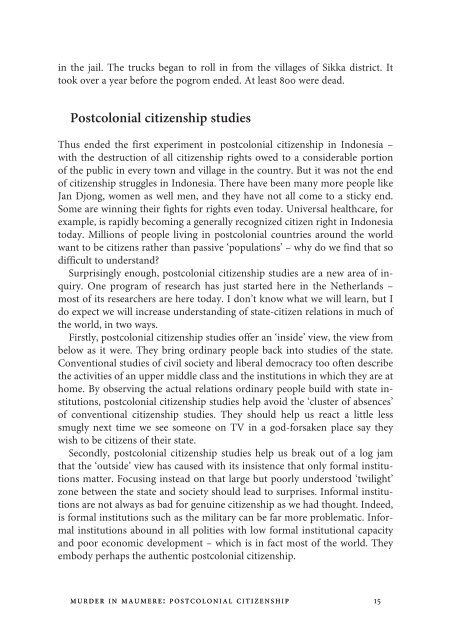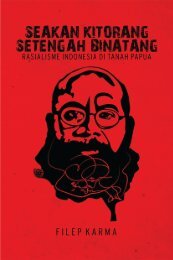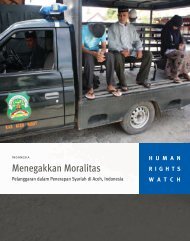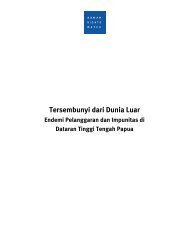Postcolonial Citizenship
PDF-6104Weboratie_Van_Klinken_-_DEF
PDF-6104Weboratie_Van_Klinken_-_DEF
You also want an ePaper? Increase the reach of your titles
YUMPU automatically turns print PDFs into web optimized ePapers that Google loves.
in the jail. The trucks began to roll in from the villages of Sikka district. It<br />
took over a year before the pogrom ended. At least 800 were dead.<br />
<strong>Postcolonial</strong> citizenship studies<br />
Thus ended the first experiment in postcolonial citizenship in Indonesia –<br />
with the destruction of all citizenship rights owed to a considerable portion<br />
of the public in every town and village in the country. But it was not the end<br />
of citizenship struggles in Indonesia. There have been many more people like<br />
Jan Djong, women as well men, and they have not all come to a sticky end.<br />
Some are winning their fights for rights even today. Universal healthcare, for<br />
example, is rapidly becoming a generally recognized citizen right in Indonesia<br />
today. Millions of people living in postcolonial countries around the world<br />
want to be citizens rather than passive ‘populations’ –why do we find that so<br />
difficult to understand?<br />
Surprisingly enough, postcolonial citizenship studies are a new area of inquiry.<br />
One program of research has just started here in the Netherlands –<br />
most of its researchers are here today. I don’t know what we will learn, but I<br />
do expect we will increase understanding of state-citizen relations in much of<br />
the world, in two ways.<br />
Firstly, postcolonial citizenship studies offer an ‘inside’ view, the view from<br />
below as it were. They bring ordinary people back into studies of the state.<br />
Conventional studies of civil society and liberal democracy too often describe<br />
the activities of an upper middle class and the institutions in which they are at<br />
home. By observing the actual relations ordinary people build with state institutions,<br />
postcolonial citizenship studies help avoid the ‘cluster of absences’<br />
of conventional citizenship studies. They should help us react a little less<br />
smugly next time we see someone on TV in a god-forsaken place say they<br />
wish to be citizens of their state.<br />
Secondly, postcolonial citizenship studies help us break out of a log jam<br />
that the ‘outside’ view has caused with its insistence that only formal institutions<br />
matter. Focusing instead on that large but poorly understood ‘twilight’<br />
zone between the state and society should lead to surprises. Informal institutions<br />
are not always as bad for genuine citizenship as we had thought. Indeed,<br />
is formal institutions such as the military can be far more problematic. Informal<br />
institutions abound in all polities with low formal institutional capacity<br />
and poor economic development – which is in fact most of the world. They<br />
embody perhaps the authentic postcolonial citizenship.<br />
MURDER IN MAUMERE: POSTCOLONIAL CITIZENSHIP 15






